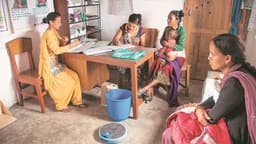Home / Health / India's Superbug Crisis: 83% of Patients Infected
India's Superbug Crisis: 83% of Patients Infected
18 Nov
Summary
- Over 83% of Indian patients carry multidrug-resistant organisms.
- India is identified as the epicenter of a superbug explosion.
- Urgent policy changes are needed for antibiotic stewardship.
A landmark study published in The Lancet eClinical Medicine has sounded a dire alarm regarding antibiotic resistance in India. The research indicates that a staggering 83% of Indian patients harbor multidrug-resistant organisms (MDROs), positioning the nation at the forefront of a global superbug crisis. This prevalence far exceeds that observed in Italy, the United States, and the Netherlands, underscoring the urgency for immediate policy interventions and a nationwide shift towards antibiotic stewardship.
The study reveals that resistant bacteria, including ESBL-producing organisms and carbapenem-resistant bacteria, are rampant among Indian patients. Researchers attribute this alarming rate not solely to medical history but to pervasive issues like antibiotic misuse, over-the-counter availability, incomplete treatment courses, and widespread self-medication within the community. The implications are severe, leading to prolonged recovery, increased complications, and substantially higher healthcare costs.
Experts are calling for strict prescription-only policies, robust national antibiotic stewardship programs, and extensive public awareness campaigns. A comprehensive One Health approach, addressing antibiotic misuse across humans, livestock, and agriculture, is also deemed essential. Without swift and decisive action, India risks entering a post-antibiotic era where common infections and routine medical procedures could become life-threatening, necessitating a critical wake-up call for all stakeholders.



